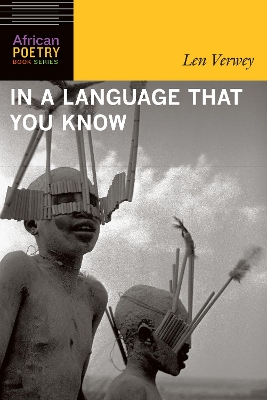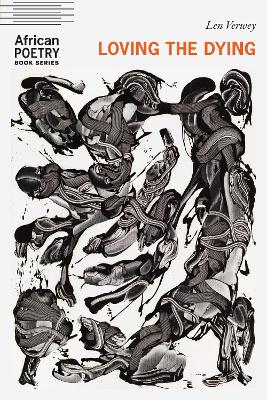African Poetry Book
2 total works
South Africa is a complicated, contradictory, and haunted place. Len Verwey captures the trajectory of life in such a place, dealing with childhood, war, marriage, divorce, and death. He explores the challenges posed by place and history, shared identities, deep embeddedness in the continent, and the legacies of violence and exclusion, as well as beauty.
Verwey offers poems that speak of uncertainty, ask questions, and challenge simplistic and scapegoating narratives that become so tempting when living in a society undergoing intense social and economic pressure. Dealing less with factual or political explanations of war and more with the compulsion of war, in particular, “maleness” and violence, Verwey pulls the reader into another world, opening eyes to the “crisis of men,” the violence against women, children, and the foreign in a country where conflicts are again escalating. In a Language That You Know strives to understand the complexity of one of the most unequal, violent, yet most vibrant societies in the world.
Verwey offers poems that speak of uncertainty, ask questions, and challenge simplistic and scapegoating narratives that become so tempting when living in a society undergoing intense social and economic pressure. Dealing less with factual or political explanations of war and more with the compulsion of war, in particular, “maleness” and violence, Verwey pulls the reader into another world, opening eyes to the “crisis of men,” the violence against women, children, and the foreign in a country where conflicts are again escalating. In a Language That You Know strives to understand the complexity of one of the most unequal, violent, yet most vibrant societies in the world.
Loving the Dying is a collection of poems on life’s different stages. Set against the backdrop of a conflicted society, Len Verwey looks at a person’s life from youth and growing up to aging and dying, considering what the ineluctable reality of death might imply about how we should think about our lives.
These are poems of uncertainty rather than certainty. The more overtly biographical ones end with as many questions as they start with, and there is often sympathy for the outsider or the marginalized voice. Varying in tone and complexity, Verwey’s poems focus on the tension between escapism and reality, truth and delusion (for individuals and societies), and the need to face death if we are to care for the aged and learn to understand the process of dying.
As in his first poetry collection, In a Language That You Know, Verwey continues his effort to understand the successes and failures of the South African post-apartheid journey, with both humor and some despair.
These are poems of uncertainty rather than certainty. The more overtly biographical ones end with as many questions as they start with, and there is often sympathy for the outsider or the marginalized voice. Varying in tone and complexity, Verwey’s poems focus on the tension between escapism and reality, truth and delusion (for individuals and societies), and the need to face death if we are to care for the aged and learn to understand the process of dying.
As in his first poetry collection, In a Language That You Know, Verwey continues his effort to understand the successes and failures of the South African post-apartheid journey, with both humor and some despair.

